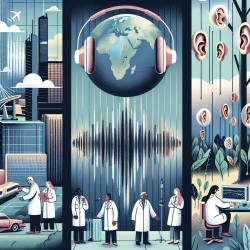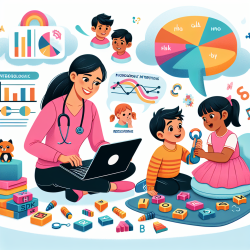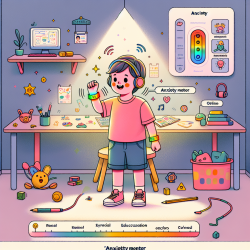Hearing conservation is a critical issue across various environments, including industry, schools, and the military. The need for effective hearing conservation programs is underscored by the increasing awareness of the long-term impact of noise exposure on hearing health. A recent review of "Hearing Conservation in Industry, Schools and the Military" offers valuable insights and practices that can help practitioners enhance their skills and implement more effective hearing conservation measures. This blog post explores the key findings from this review and suggests ways practitioners can apply these insights to improve hearing conservation efforts.
Understanding the Basics of Sound and Noise Exposure
At the heart of any hearing conservation program is a fundamental understanding of the physics of sound and the effects of noise exposure. Sound is measured in decibels (dB), and prolonged exposure to noise levels above 85 dB can cause permanent hearing damage. Industries, schools, and military environments often expose individuals to noise levels well above this threshold. Practitioners can begin by conducting thorough sound surveys to identify areas of high noise exposure and assess the risk to individuals' hearing health.
Implementing U.S. Standards and Damage Risk Criteria
The United States has established standards and damage risk criteria to protect workers and individuals from harmful noise exposure. Familiarizing oneself with these standards is crucial for developing or enhancing hearing conservation programs. These standards provide a framework for noise assessment, control measures, and hearing protection requirements. Practitioners should ensure that their programs comply with these standards to effectively mitigate the risks of noise-induced hearing loss.
Advances in Hearing Testing and Data Management
Technological advancements have significantly improved the capabilities for hearing testing and data management. Modern audiometric testing equipment and computerized data management systems allow for more accurate hearing assessments and efficient tracking of individuals' hearing health over time. Practitioners should leverage these technologies to enhance the effectiveness of their hearing conservation programs. Regular hearing screenings and ongoing monitoring can help identify early signs of hearing loss and prompt timely interventions.
Choosing the Right Hearing Protection Devices
One of the most critical components of a hearing conservation program is the selection and use of appropriate hearing protection devices (HPDs). The effectiveness of HPDs varies based on the noise environment and the specific needs of the individual. Practitioners must be knowledgeable about the different types of HPDs available, including earplugs, earmuffs, and custom-fitted devices, and how to properly fit and use them to maximize their protective benefits. Educating individuals on the importance of wearing HPDs in noisy environments is also essential.
Enhancing Employee Education and Program Components
Effective hearing conservation programs require more than just the technical measures of noise control and hearing protection. Education and training are vital components of a successful program. Employees and individuals in noisy environments should be educated about the risks of noise exposure, the importance of hearing conservation, and how to protect themselves. Tailoring education programs to the specific needs of the audience, whether industrial workers, school children, or military personnel, can improve engagement and compliance.
Special Considerations for Schools and the Military
While industrial settings have been the traditional focus of hearing conservation efforts, schools and the military present unique challenges. In schools, hearing conservation education can be integrated into the curriculum to teach children about the importance of protecting their hearing. In the military, where noise exposure is often inevitable, emphasis should be placed on the proper use of HPDs and monitoring the hearing health of service members. Customized approaches are necessary to address the specific needs and challenges of these environments.
Conclusion
Hearing conservation is a multifaceted issue that requires a comprehensive approach to address effectively. By understanding the basics of sound and noise exposure, implementing standards and criteria, leveraging technological advancements, selecting appropriate HPDs, and enhancing education and training, practitioners can significantly improve the effectiveness of hearing conservation programs. Whether in industry, schools, or the military, these efforts can help protect individuals from the harmful effects of noise exposure and preserve their hearing health.
For practitioners looking to deepen their understanding and improve their skills in hearing conservation, the insights from "Hearing Conservation in Industry, Schools and the Military" are invaluable. By applying these practices, we can make strides in protecting the hearing health of individuals across various environments.
To read the original research paper, please follow this link: Hearing Conservation in Industry, Schools and the Military.










